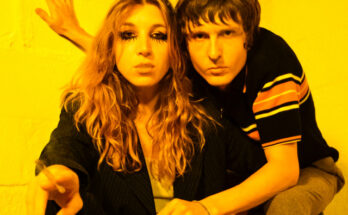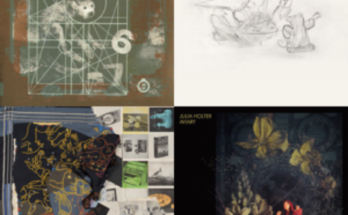A column on contemporary political rock cleverly referencing Bob Dylan’s most recent album and therefore paralleling music’s past to today.
Whenever a musical artist writes lyrics that aren’t about strictly sexing or drugging and doesn’t have a totally radio-ready voice, they are invariably compared to Bob Dylan. It’s probably the smartest thing for a critic or a blogger or whoever to say. It a) automatically establishes musical knowledge by mentioning Dylan and b) makes the writer seem controversial and edgily hip. In reality though, they effectively hide that they know as much as the average KISS FM listener.
I mean, I’m not above it by any means; it really does seem more interesting and intelligent discussing Dylan as opposed to, say, The Beatles. Everyone likes The Beatles a lot, so even though they were brilliant, they get trivialized by every beer pong punk wanting to blast “Helter Skelter” when they need to high-five. Conversely, I’ve oddly enough have never seen “Sad Eyed Lady of the Lowlands” on a power hour mix. There’s nothing hip or shocking about declaring the new Dylan because currently there are 400 (i.e. Jeff Tweedy, Sufjan Stevens, Mike Skinner, The Arctic Monkeys (?!)) new Dylans. The only thing that the title brings is unwarranted and hilarious expectations to these Dylanesque artists … for example, Bright Eyes.
Since he was 13 and recording his prepubescent metaphysical issues on a cassette, Conor Oberst (Bright Eyes) has been compared to Dylan. Inverse to Bobby D’s career though, only very recently has Oberst delved into the realm of political rock. Initially subtle and thought out, it seemed like a good fit for Bright Eyes, but his new completely charged record, Cassadaga, raises questions on writing political music in today’s world.
Of course, the climate (literally and figuratively) demands people to speak out for change. I don’t want to use this as a soapbox, but I think what’s wrong is known to all, and when musicians have taken a stab to move the masses, it’s either been ignored or discredited.
In terms of ignored, there was American Idiot by Green Day and Living with War by Neil Young. American Idiot did suck, naturally, and accordingly won X-amount of Grammy awards, but the political message didn’t transfer into anything more than a murmur. There wasn’t even much response to the incendiary lyrics. It was turned into another unimportant pop punk record by the media.
Living with War was hotly discussed, but that’s all these records seem to do in today’s society. The Vietnam/Civil Rights era was defined by its music, like “We Shall Overcome” or Buffalo Springfield’s “For What It’s Worth.” People haven’t rallied around any song or really any sort of resistance to the war or the government in general; this age will be defined by ‘tsking’ and watching The Colbert Report.
On the other hand, if a song is too political, it gets discredited. I’m in the camp, admittedly, that rags on writing too blatant of protest songs. I hate Bright Eyes’ “When the President Talks to God” for lines that literally say Bush eats feces, but at the same time I love Dylan’s “Masters of War” a song just as specific and enraged. For some reason we don’t want to be shown the miseries we let happen, it’s easier to just allude to them and shake our heads while feeling ‘progressive’ and ‘aware.’
I don’t mean to be nostalgic for an era I didn’t live in – I know the majority of society didn’t march or listen to Crosby Stills etc. But, maybe our whole nation could rally in V for Vendetta-like protest if we just heard good enough songs … so here are four perfect political rabble rousers.
1. “Pillar of Salt” by The Thermals
2. “Armchairs” by Andrew Bird
3. “Landlocked Blues” by Bright Eyes
4. “Makeshift Patriot” by Sage Francis
If you illegally download these songs you stick it to the man twice! I think Dylan would approve, and isn’t that what life is all about?



